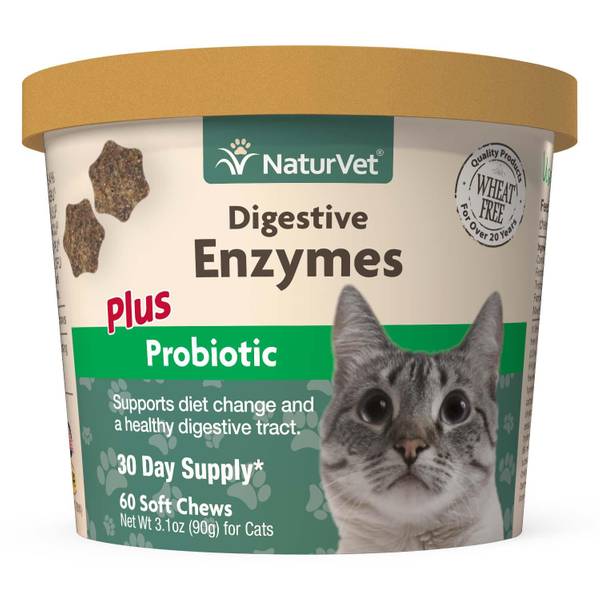As a responsible cat owner, you should help your furry baby maintain strong digestion, and if it experiences digestive issues you would want to try your best to make your fluffy friend feel better. Probiotics and digestive enzymes are two nutritional supplements that help with just this.
However, before considering buying them, take your vet’s advice. This way, you can provide your cat with the right supplements of the right quality. At the same time, consider being prepared with pet insurance, so the finances involved in dealing with non-routine vet visits like emergencies are more bearable.
Cat insurance is available in different levels of cover so weigh the many different plans carefully and assess your cat’s health needs and your budget before contemplating purchasing a policy. In the meantime, learn about the benefits of administering the above-mentioned nutritional supplements.
Probiotics
Probiotics are symbiotic bacteria resident in the feline gut that promote digestion. Their number declines when a furball is on antibiotic medications, causing gastrointestinal problems. Offering your cat these supplements is an easy way to replenish the depleted, natural, good bacteria present in the gut and alleviate its symptoms.
However, give high-quality supplements explicitly made for feline consumption. Pay attention to the doses, so your cat gets the right dosage of probiotics over a period to hopefully restore its digestive health.
Digestive enzymes
These enzymatic products also aid digestion; however, they work differently. There are several types of digestive enzymes, and they function to break down ingested food. For instance, the enzyme Protease digests protein; the enzyme Amylase breaks down carbs, and the enzyme Lipase is necessary to digest fats.
Offer your cat breed-specific and species-specific, top-quality diet food; however, consider providing it with digestive enzymes to help improve your cat’s gut health. This way, your cat’s digestive system can absorb and assimilate the nutrients efficiently.
These enzymes ensure your furball’s overall health and wellbeing. Remember that other health areas are most likely to benefit when your feline has strong digestion. Then again, you should offer your cat one of these – probiotics or enzymes – only after vet recommendations. Some pets need either of the two, both, or other dietary supplements, depending on their digestive health condition.
Some cats require them for digestive maintenance and others for relieving symptoms. Also, many cat owners provide their feline pets with these supplements to enhance their digestive functions. Suppose your cat has been suffering from severe or prolonged digestive ailments; consult your vet for testing and treatments.
While simple digestive issues can be corrected with the help of a few over-the-counter medications or home concoctions, chronic problems need timely medical intervention. Unanticipated vet bills can be hefty, which is why you must be prepared to handle them ahead of time.
Pet insurance covers a cat’s diagnostic, treatment, and medication costs during accidents, injuries, specific illnesses, dental issues, emergencies, and much more. Consider being equipped with cat insurance so your munchkin gets the medical care it deserves at all times at economical costs.



